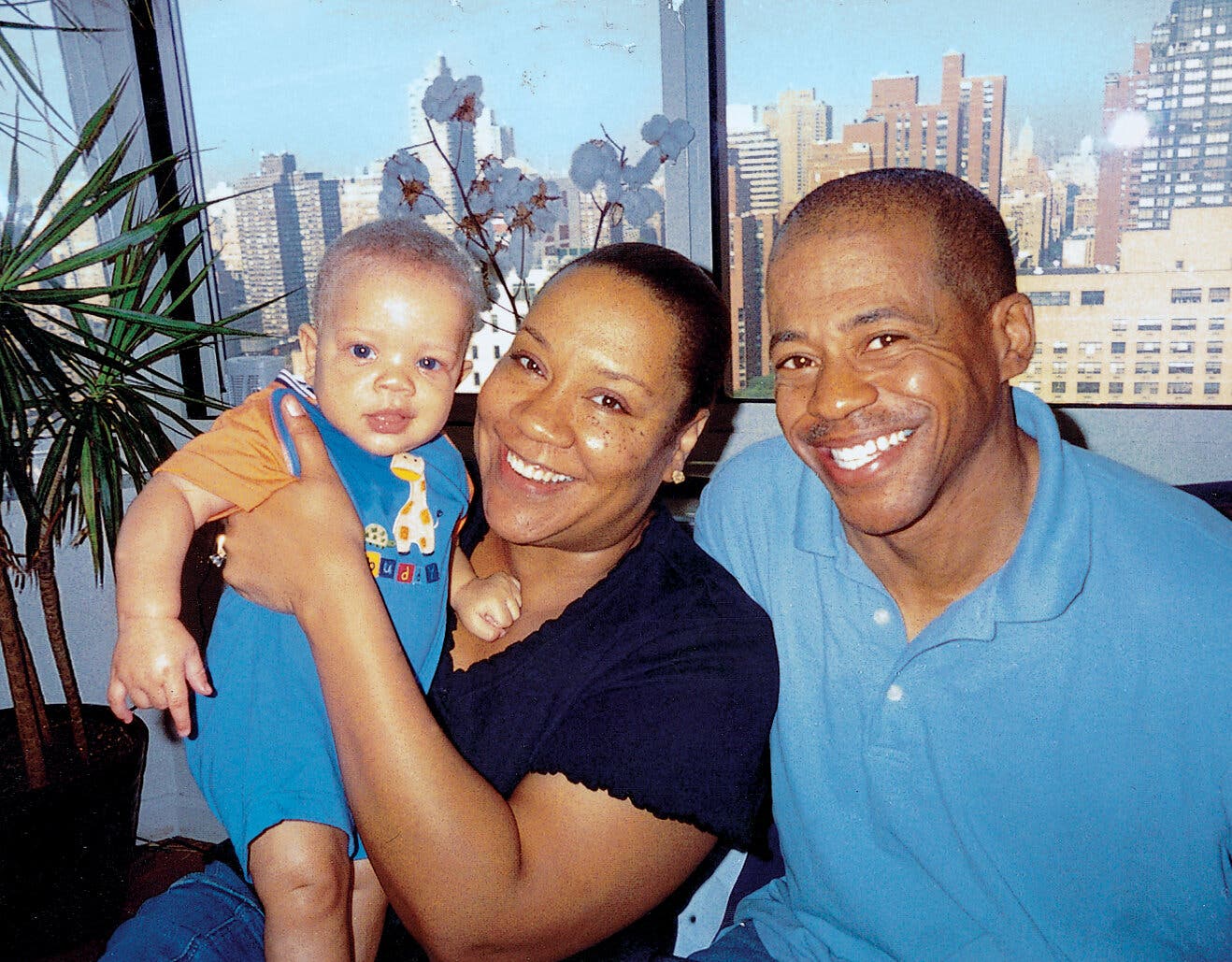‘A Journal for Jordan’ follows the touching story of a war hero deployed in Iraq who writes a journal of fatherly advice for his infant son. After he is killed in battle, 1st Sergeant Charles Monroe King’s fiancée, Dana, reflects on their relationship and the legacy her partner has left for their son. The intimately told story unfolds with glimpses of Charles and Dana’s romance and the brief time the father and son spent together. The narrative and its characters have a strong ring of truth, and the tragic effects of war are all too real. So just how much of ‘A Journal for Jordan’ is based on a true story? Let’s find out.
Is A Journal for Jordan a True Story?
Yes, ‘A Journal for Jordan’ is based on a true story. Directed by Denzel Washington, the film is based on the memoir ‘A Journal for Jordan: A Story of Love and Honor’ by Dana Canedy and was penned into a script by Virgil Williams. Bringing the project to life has been many years in the making, and Washington revealed that he was first introduced to the memoir by his producing partner, Todd Black, around 2009, with the script delivered by 2018. A testament to just how accurate the film is to real-life is the fact that Canedy revealed she was regularly consulted by Washington, Williams, and even lead cast members Michael B. Jordan and Chanté Adams.

The film’s narrative closely follows the real-life relationship between Pulitzer-Prize-winning journalist Canedy and the decorated 1st Sergeant King. While deployed overseas, King kept a journal full of heartfelt life advice for his newborn son. By the end, the journal, which grew to 200 pages, was full of lovingly penned words of fatherly advice on subjects like the power of prayer and how to choose a wife, among a lot more. King began writing the diary in 2005 and was killed by a roadside bomb in Iraq on October 14, 2006. Their son, Jordan, was only seven months old at the time.
At the time of her partner’s death, Canedy was a journalist at The New York Times and wanted to share the unbearably emotional experience of being informed that King had made the ultimate sacrifice. Through her article, published in early 2007, she did just that. The piece then led to her memoir, which was eventually adapted to screen to become the film ‘A Journal for Jordan.’
As told by its screen adaptation, the story shows multiple aspects of the loving relationships between Canedy, Charles, and their son, Jordan. Apart from the connection forged between the late father and his son through the journal, the film is also a mother’s letter to her child telling him about the father he lost. Canedy and King’s romance and deep relationship are also explored in the narrative.
Through much of the film, because of how the story is told, Washington wanted audiences to have a woman’s perspective, with cinematographer Maryse Alberti’s framing adding the required touch. However, according to the lead actress (Adams), the director was also adamant about not making a biopic on Canedy’s life but instead exploring the love that the former journalist and her fiancé shared. Thus, Adams also reached out and discussed her role with her character’s real-life counterpart, leading to an authenticity onscreen that even Canedy acknowledged.

As one can imagine, the entire experience was overwhelming for the titular memoir’s author. As involved as she was in the making and promotion of the film, it was understandably also a painful process and regular reminder of her and her son’s loss. In an article recalling her experience, Canedy mentioned how even while planning for the film’s premiere, shopping for a gown with her girlfriends and preparing the theatre seating chart were heartwrenching reminders of the wedding that she and her late fiancé never had.
At the film’s premiere, Canedy noticed that her son, now 15, was wearing his father’s dress shoes and recalled how, as a young child, he had walked around the house wearing them when his father had visited during a two-week vacation. Ultimately, ‘A Journal for Jordan’ is based on a true story but is also significantly more than that. It is a living, breathing story that still continues in the real world as the real people depicted in the film carry the memories and legacy of the late 1st Sergeant Charles Monroe King.
Read More: Where Was A Journal for Jordan Filmed?


You must be logged in to post a comment.